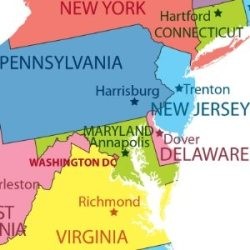PA iGambling Provision Included In Just House Budget Bill

Pennsylvania has considered setting up its own iGaming industry for some time now, but recently the state moved one step closer to enacting the legislation needed to allow regulated online gambling to take place within its borders. Back in November, the PA House Gaming Oversight Committee passed HB 649, the iGaming legislation drafted by John Payne, the committee chairman, and co-chair Nick Kotik.
Online gambling is seen as providing a much-needed source of extra income to help ease the state’s budgetary problems, and Pennsylvania’s legislators are currently trying to agree a budget for the 2015-16 fiscal year. While separate plans were approved in the state Senate and House committee this week, only the House version includes provisions to allow online gambling, while Senate Majority Leader Jake Corman has said that there was not enough support to pursue online gambling expansion in Pennsylvania.
What Next?
Online gambling can only be included in the state’s next year budget if it receives approval from the Senate. Despite the Senate’s budget proposing $500 million more expenditure than the House version, Pennsylvania Governor Tom Wolf appears more supportive of this budget plan, even though it is not at all clear where the extra money will be found. This may suggest that online gambling may yet be considered as a means of raising the extra revenues as practical steps are sought to meet the extra spending.
In the meantime, Rep. John Payne said that if HB 649 did not receive approval by the end of 2015, and no provision is included for online gambling in the state’s budget, then he would continue his legalization lobbying efforts in 2016.
There now appears to be two ways that HB 649 could move forward from this point. The simplest, but less likely route, involves the bill being put to a vote in the PA House and Senate, before then be presented to the Governor to sign just like any other bill. Alternatively, the bill could be attached to the state’s 2016 budget and passed along with the now overdue legislation. If Pennsylvania lawmakers decide on the latter route, the bill could still be signed into law before the close of 2015. Otherwise, experts believe it will likely pass in 2016.
Important Details of HB 649
– Online gaming platforms will be able to operate in the state after paying a licensing fee of $8 million. Some approved platform providers like PokerStars and PartyPoker will have lower fees at $2 million
– The state will assess a 14 percent tax on gross gaming revenue, and a 2 percent local tax could be assessed; Some of the money generated through this tax will go to pay for gambling addiction initiatives
– The 6 international airports located in Pennsylvania will be allowed to install slot machines in areas accessible to ticketed passengers
– Racinos will be permitted to install slot machines, provided their locations are at least 50 miles from a PA licensed casino
– Video gaming terminals will be allowed to be installed in licensed businesses in Pennsylvania located 35 to 50 miles from off-track betting parlors and casinos
– The bill calls for a review of fantasy sports betting with findings reported within 90 days of when the legislation passes
– Casinos will be able to serve liquor 24 hours per day
– The Pennsylvania Gaming Commission Board will be permitted to approve hybrid slot machines that incorporate skill with traditional play
– Casinos that are classified as Category 2 properties will be allowed to participate in horse race simulcasting for the first time
What Pennsylvania Gains from iGambling
Industry experts estimate that Pennsylvania will bring in more than $100 million just by issuing online gambling licenses in 2016. Most experts believe that at least 10 of the 12 casinos licensed to operate in the state will participate in online gambling. After 2016, experts estimate that the tax revenue generated by online gaming would be quite sizable. For 2017, the state is expected to receive $23 to $35 million in tax money from gross gaming revenue, and from 2018 onward, tax revenues could be as high as $30 to $49 million. With the state facing a deficit of nearly $2 billion, it’s easy to see why some lawmakers are eager to get HB 649 passed.









